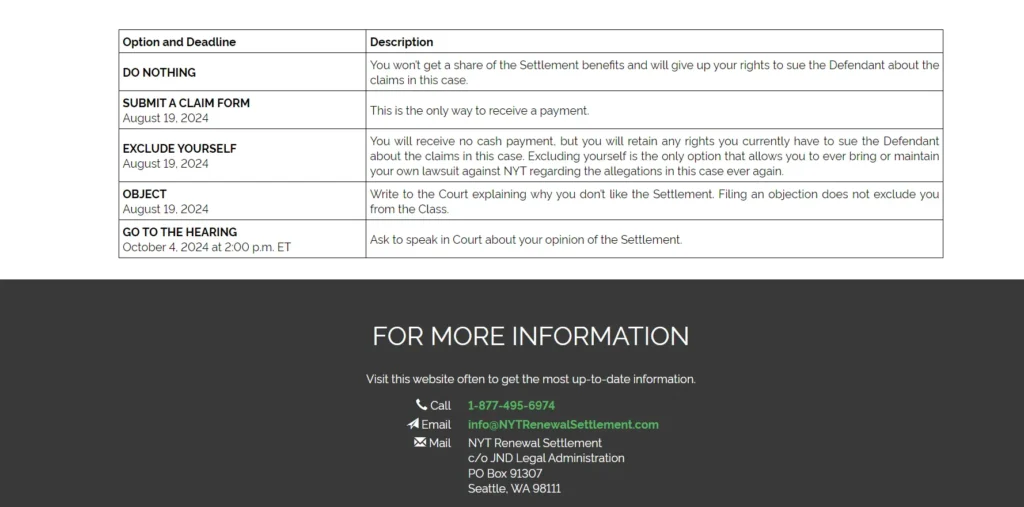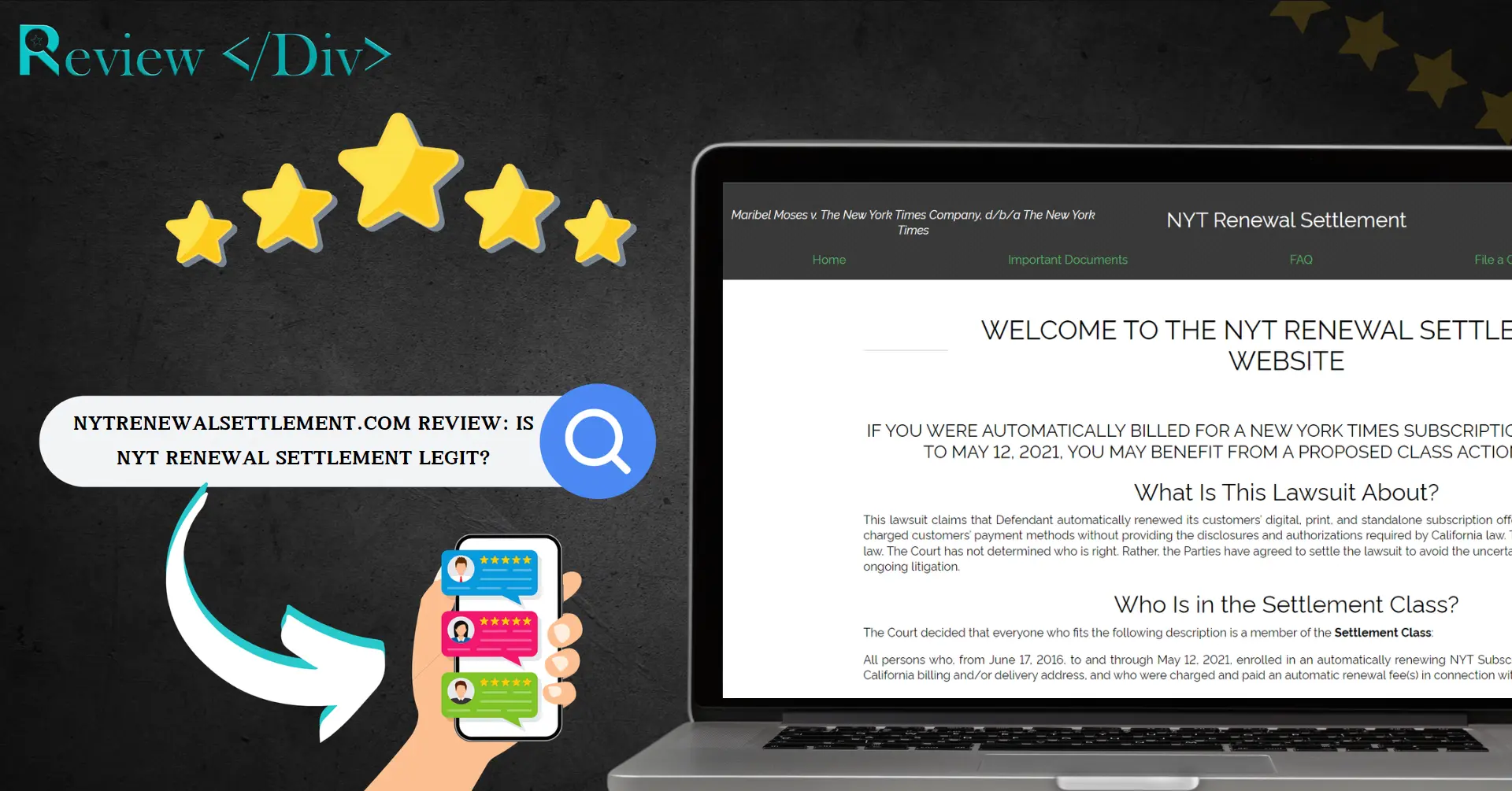When people get unexpected notices about class action settlements, they worry if the notice or the website is real or a scam. The NYT Renewal Settlement website (nytrenewalsettlement.com) is one of those sites that has made some people suspicious.
This article will help you figure out if this site is legitimate or a scam by pointing out negative signs, explaining common scam techniques, and giving tips on how to avoid scams.
What Is NYT Renewal Settlement?
The website nytrenewalsettlement.com shares details about a class action settlement involving The New York Times. In the case Maribel Moses v. The New York Times Company (Case No. 1:20-cv-04658-RA), it was claimed that The New York Times renewed customers’ subscriptions and charged them without the necessary warnings and permissions required by California law.

The New York Times denied doing anything wrong, but they agreed to settle to avoid more legal problems. This settlement includes a $2,375,000 fund to compensate affected customers and requires the company to update its subscription renewal practices to meet California laws.
Read: BlueSenate.com Review: Is BlueSenate Legit?
Is NYT Renewal Settlement Legit?
There are many Red Flags associated with NYT Renewal Settlement that suggest it might not be a trustworthy website. Here are some points that can be considered.
Unclear Legal Claims: The lawsuit says the NYT broke California law with automatic renewals, but the NYT disagrees. This confuses people about whether the claims are valid.
Settlement Amount: The total fund is $2,375,000.00, but it’s not clear how much each person will get after paying for administration costs, attorney fees, and other expenses.
Legal Rights and Options: The options and deadlines are not easy to find, so people could miss important dates like the claim submission deadline (August 19, 2024).
Exclusion Details: Opting out of the settlement means giving up any money from it but keeping the right to sue. This is a big decision that is not clear to everyone.
Complex Legal Language: The legal language used is too complicated for most people, leading to misunderstandings about their rights and options.
Unclear Monetary Benefit: It’s not clear how much each person will get from the settlement, making it hard to know the actual financial benefit.
Notification Methods: Relying on people to check the website for updates does not work well. Other ways to inform people are needed.
Potential Costs: The costs of running the settlement and paying attorneys come out of the total fund, which might leave less money for the people in the class.
Privacy Concerns: The privacy policy is mentioned, but it doesn’t clearly explain how claimants’ information will be handled and protected, raising privacy concerns.
How To Avoid NYT Renewal Settlement Scams?
To avoid scams related to the NYT Renewal Settlement website, follow these tips:
- Verify the Website: Confirm the website URL is correct:
nytrenewalsettlement.com. Be cautious of similar-looking URLs or variations.
- Look for Official Logos and Contact Information: Check for the official NYT logo and legitimate contact details. Compare these with the official NYT website if unsure.
- Avoid Unsolicited Emails or Calls: Be careful of emails or phone calls claiming to be about the settlement. Scammers often use these methods to obtain personal information. Verify by contacting the official numbers or email provided on the website.
- Do Not Share Personal Information: Avoid giving out personal or financial information unless you are sure the site is legitimate. Official settlement sites will not ask for sensitive information like Social Security numbers over email or phone.
- Check for Official Updates: Visit the official NYT Renewal Settlement website regularly for updates. Official communications will be posted there.
- Contact Legal Assistance: If in doubt, consult with a lawyer or a legal expert to verify the legitimacy of the site and the settlement process.
- Research the Settlement: Look for news articles or press releases about the settlement from reputable sources. This can provide additional verification.
Read: Eindeals Lulu $750 Gift Card Scam: All You Need To Know

Erika is a Computer Science student with a passion for reading and digital exploration. She loves to read personal growth books and spends her free time navigating various websites, improving her technological skills and understanding of web platforms. Erika is particularly interested in cybersecurity and stays updated on news related to scams and fraud. Her curiosity and dedication push her to pursue a career where she can innovate and improve digital safety and user experiences.







